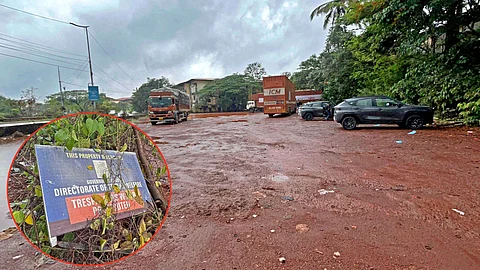

The Goa Cabinet has approved the transfer of 2,400 square metres of land in Porvorim for the long-awaited Dr. Babasaheb Ambedkar Bhavan—a project intended to honour the legacy of the social reformer and serve as a resource centre for marginalised communities. However, progress has hit a roadblock as two Scheduled Tribe (ST) community associations have stepped forward, claiming ownership of the same land and arguing it was initially earmarked for a Tribal Bhavan.
Chief Minister Pramod Sawant confirmed that while the Cabinet has cleared the land transfer, the legal dispute over rightful ownership has stalled the project. The ST associations insist the land was promised for a dedicated Tribal Bhavan—reflecting deeper concerns about tribal land rights in Goa. This disagreement has attracted attention from the National Commission for Scheduled Tribes (NCST) and various advocacy groups, highlighting ongoing debates over land allocation and recognition of tribal claims.
Acknowledging the issue’s sensitivity, the Chief Minister said the government is working to resolve the dispute in a way that considers all stakeholders’ interests. The legal challenge must be addressed before construction can begin, and state officials are expected to facilitate dialogue between the contesting groups to find a compromise.
This situation unfolds against a broader backdrop of land rights activism among Goa’s tribal communities, many of whom have long lacked formal ownership of the land they cultivate. The resolution of this case may set an important precedent for future land allocations involving marginalised communities.
Until then, the Ambedkar Bhavan project remains on hold—underscoring the complex realities of land rights and representation in contemporary Goa.